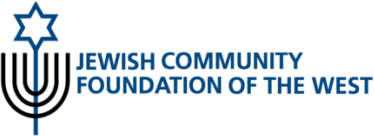Donor Advised Funds

A Donor Advised Fund – one of the fastest-growing giving tools in the country – is an ideal way to simplify your charitable giving, gain immediate tax deductions, and easily support causes you care about – all on your timeframe. With a Donor Advised Fund at The Foundation, you will join a large family of dedicated philanthropists and amplify your charitable impact.

Donate
Create
Focus
Invest
Support
Key Elements of Donor Advised Funds
| Donor Advised Funds | |
|---|---|
| Control | Donor may advise JCFW to grant to qualified nonprofit groups, subject to approval. Multiple investment options available, overseen by JCFW’s investment committee. |
| Tax Deductibility | Fair market value for generally all assets held over one year. Deductibility. Higher AGI limits for public charities apply. |
| Minimum Payout Requirement | None |
| Investment Flexibility | Donors may choose from several professionally managed investment "pools" designed to meet a broad variety of philanthropic objectives. |
| Continuity | Donor may name successor advisor(s) to his/her fund. |
| Grantmaking | JCFW’s professional staff provides as much or as little advice as needed. Grants may only be made to IRS qualified public charities. |
| Administration | Nothing required of donor. JCFW does all of the reporting. Administration is pooled for a modest annual fee. |
| Privacy | Aggregate reporting allows complete anonymity; donor’s name not attached to fund’s grantmaking or reporting, if desired. Alternately, donor’s name can feature prominently in fund’s name and grantmaking if donor wishes. |
| Excise Taxes | None |
| Staff | Access to JCFW staff (for investment, grantmaking expertise). |
| Start-up Timeframe | Immediate – in one day. |
| Start-up Costs | None |
| Ongoing Costs | Fund pays modest annual fee to JCFW for pooled administration and investment management. |
Philanthropy Terms And Language
Philanthropy
The desire to promote the welfare of others, expressed especially by the generous donation of money to good causes.
501(c)(3)
Section of the Internal Revenue Code that designates an organization as charitable and tax-exempt. Organizations qualifying under this section include religious, educational, charitable, amateur athletic, scientific or literary groups, organizations testing for public safety or organizations involved in prevention of cruelty to children or animals.
Strategic Philanthropy
Intentional direction of charitable dollars with knowledge of expected results, greatest impact and leverage of dollars with specific goals in mind.
Giving Circle
A giving circle is a form of participatory philanthropy where groups of individuals donate their own money or time to a pooled fund, decide together where to give these away to charity or community projects, and, in doing so, seek to increase their awareness of and engagement in the issues covered by the charity or community project.
Donor Advised Fund
An individual charitable account that helps make giving easier and more meaningful. The donor(s) makes a donation to establish the fund and receives an immediate tax deduction to the full extent allowed for gifts to a public charity. Then, the donor(s) retains the privilege of recommending grants at any time in the future to the causes that he or she values most.
Bequest
Through a will or trust. This is the most popular planned giving method and the simplest.
Charitable Gift Annuity
A simple contract between you and the Foundation in which you make an irrevocable gift of cash or securities in exchange for guaranteed payments for life. Part of the payments is tax-free. After your lifetime, your chosen organization(s) receives the remainder of the funds.
Charitable Lead Trust
A trust is established with your attorney. Receive an income tax deduction upon creation, provide your favorite organization income for a fixed term and the remaining assets return to you or other named family members.
Charitable Remainder Trust
A trust established with your attorney that provides you with lifetime income and an income tax deduction upon creation. The remainder of the trust is distributed to your favorite organization(s). Useful for complex assets, such as real estate.
Endowment Fund
A permanent fund that supports your favorite organization(s) in perpetuity. Distributes a fixed percentage of the fund to your chosen organization(s) each year.
Life Insurance
Name your favorite organization(s) or the Foundation as partial or sole beneficiary of your policy. Leverage your giving by naming a new policy or transferring an existing policy to the Foundation to be designated to your favorite organization(s). You may receive an immediate and future income tax deduction for the premiums paid or value of the transferred policy.
Retirement Plan/IRA Assets
Most types of retirement plans are heavily taxed at death so they are advantageous assets for giving. Name your favorite organization(s) or the Foundation as beneficiary while avoiding income and estate tax for your heirs.
